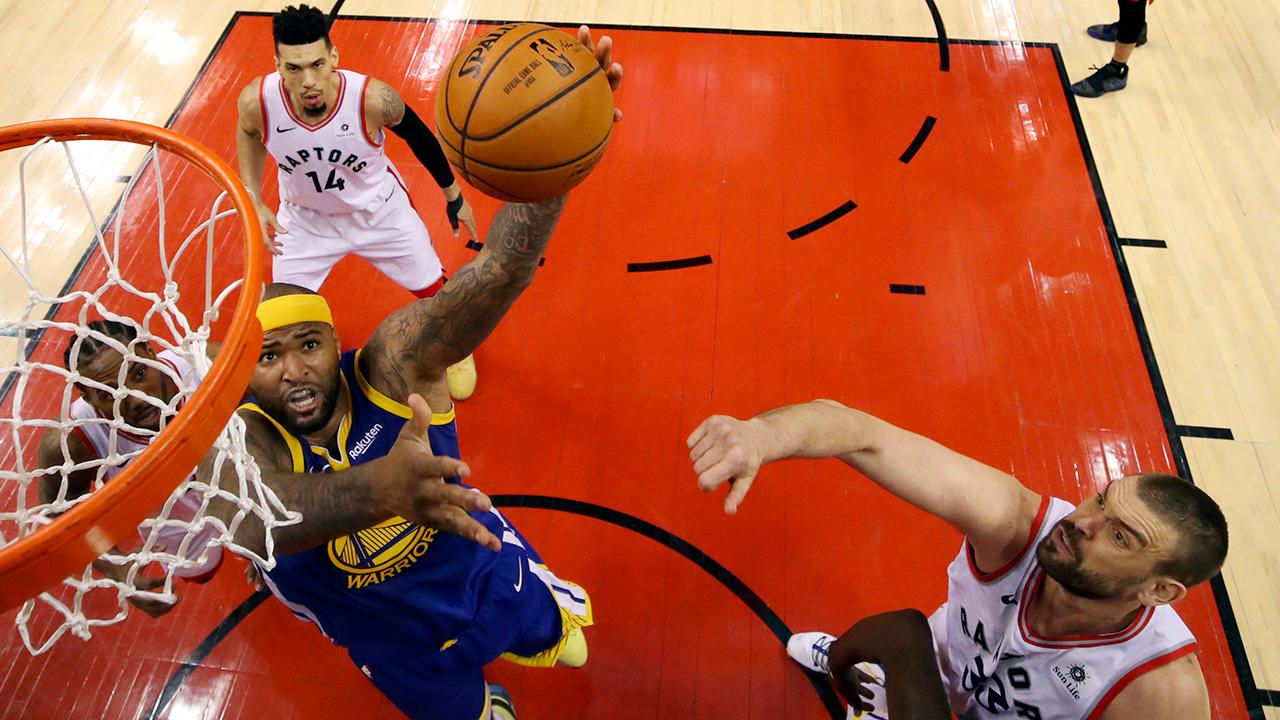Kawhi Leonard, other Toronto Raptors stars' tax bills among worst in the NBA
While most pro-athletes with large contracts – including those on NBA championship playoff teams the Toronto Raptors and the Golden State Warriors – pay a lot in taxes, players in Canada that are U.S. residents face different, heftier obligations.
U.S.-based players pay federal taxes – where the top rate is 37 percent – in addition to state and local taxes, which are much higher for some players than others.
A handful of teams are located in states like Florida, Texas and Washington, which charge no income tax.
Even athletes who live in states without income taxes, however, are subject to taxes in other states where they play and earn income. Those "jock taxes" are usually calculated by dividing the number of work days spent (practices and games) in the city by the total number of work days, but some states just use games played. It's not a double tax, however. Players pay taxes equal to the highest rate in either their resident or non-resident state. They get credit for the taxes in the lower-tax state.
But the Toronto Raptors are based in Canada, which means players – who are often U.S. residents – face different tax liabilities.
American players in Canada pay tax on their Canadian-sourced income. Most athletes will be subject to the maximum rate of 53.53 percent (combined federal and provincial) on the income earned while playing there. As U.S. residents, they will also be taxed by the IRS on all income, where the top federal rate is 37 percent. They also may owe state taxes based on where they are a resident, and jock taxes for income earned in different cities.
Players do receive a credit for the taxes they pay in Canada, however it is not a full credit since Canadian rates are higher, Robert Raiola, director of the sports and entertainment group at PKF O'Connor Davies, told FOX Business.
Tax liabilities on $1 million in earnings could be upwards of $100,000 more for U.S. athletes playing in Canada, Joel B. Kramer, Managing Director at CBIZ MHM’s Phoenix office, told FOX Business.
For some, the differences are exacerbated. Raptors star Kawhi Leonard was born in the U.S., and was traded from the San Antonio Spurs to the Toronto Raptors in 2018. From Texas – a state that charges no income tax – to Toronto, Leonard’s tax liabilities on his $20,099,188 salary increased by about $2.07 million, according to Forbes. He did, however, receive a multi-million dollar trade kicker.
There is a tax treaty between the U.S. and Canada whereby Canada can only tax signing bonuses at a maximum rate of 15 percent. Kramer, who is also a former NBA player, noted that while signing bonuses are allowed in the NBA, "it is not the norm since most contracts are guaranteed."
Leonard may become a free agent this year. If he does leave Toronto, for tax purposes it might be wise to stay away from California, too.
CLICK HERE TO GET THE FOX BUSINESS APP
California’s Golden State Warriors point guard Stephen Curry, for example, takes home about $17,751,150 of his $37.5 million gross wages, according to Raiola’s calculations. Curry pays around $14.7 million in federal taxes, and just shy for $5 million in state, local and jock taxes. Curry is currently the league's highest-paid player.
Milwaukee Bucks star Giannis Antetokounmpo, meanwhile, has net wages of $12,820,900 – out of gross wages valued at $24.2 million.




















